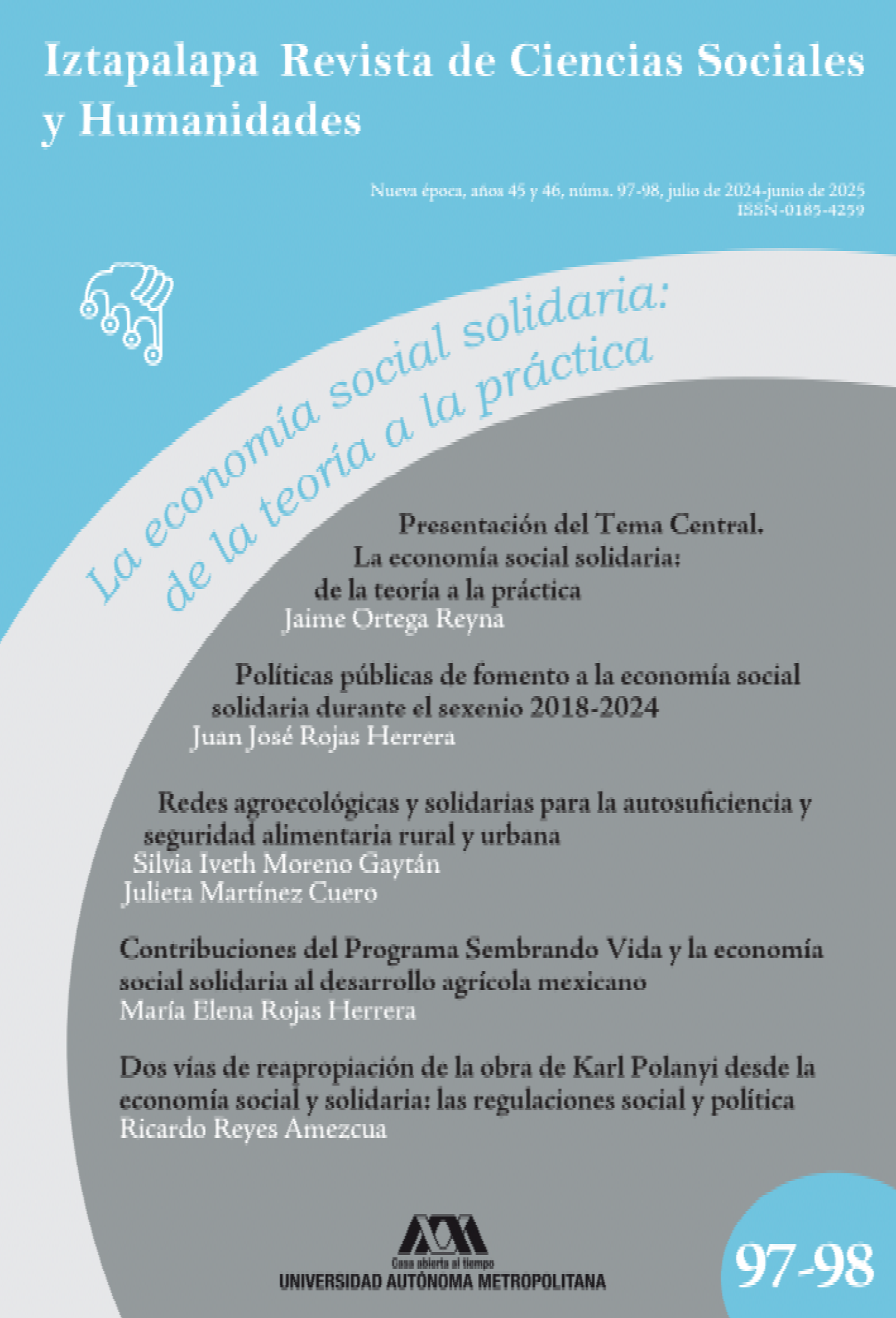Agroecological and solidarity networks for rural and urban self-sufficiency and food security
Abstract
This article aims to show the efforts made by small producers to consolidate healthy and sustainable food in urban territories in collaboration with rural areas, in a scenario where food insecurity is growing in Mexico and the world. Based on the analysis of three cases in which rural-urban projects coexist, a strategy is proposed to reduce food insecurity in the country from a regional perspective that addresses food production and demand. With this, the implications that the economic and social development model adopted in Mexico has had on the agri-food system, the rural environment and its inhabitants are discussed. It is also addressed the reconfiguration of territories, delving into the disappearance of the dichotomy between rural and urban areas, and questioning the responsibility that has been delegated to the rural world to provide quality food to cities. The results highlight the need for a broad territorial vision for food production and the strengthening of solidarity networks that integrate the urban and rural areas without a strict dichotomy between both terms.
Downloads
Downloads
Published
Issue
Section
License

This work is licensed under a Creative Commons Attribution-NonCommercial-NoDerivatives 4.0 International License.




.jpg)

.png)
.jpg)




.png)
.png)
1.png)
